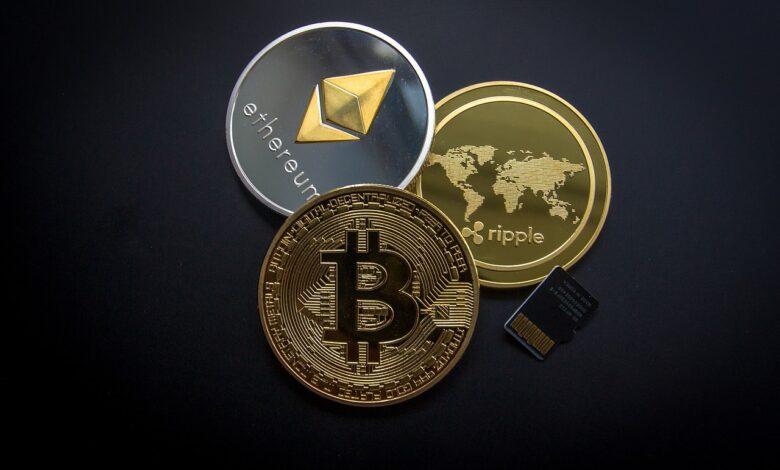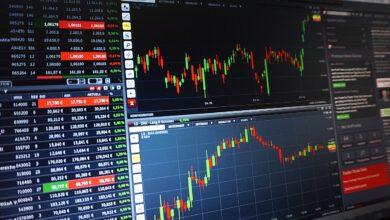Smart Choices – Fees and Safety in Crypto

In the rapidly evolving realm of digital assets, where volatility reigns supreme and innovation is the only constant, the importance of comprehending the intricacies of fees and security cannot be overstated. As a prospective trader or investor, your journey begins with selecting the right cryptocurrency exchange–a decision that will ultimately shape your experience in this vibrant marketplace. It is imperative to grasp not only the costs associated with your chosen platform but also the protective measures that safeguard your investments.
When opting for a trading platform, understanding the various charges that come into play is crucial. These expenses can manifest in myriad forms, from trading fees to withdrawal costs, each contributing to the overall economics of your trading strategy. A keen awareness of these financial implications will enable you to make informed decisions that align with your investment goals, thereby optimizing your returns while minimizing unexpected expenditures.
Equally vital is the dimension of security; after all, one cannot emphasize enough the necessity of protecting one’s digital assets in an environment that is often fraught with risks. Comprehending the security measures employed by a platform–be it two-factor authentication, cold storage, or insurance against breaches–empowers you to assess the safety of your investments. Selecting an exchange that prioritizes robust protection features is not merely prudent; it is an essential aspect of fostering confidence in your trading endeavors.
As we delve deeper into this exploration, we will illuminate the critical facets of understanding costs and safety in cryptocurrency trading. By doing so, we aim to equip you with the insights necessary for navigating this complex landscape with both awareness and assurance. Ultimately, grasping these elements will serve as a foundation for a successful and secure trading experience in the ever-expanding world of digital currencies.
Understanding Crypto Marketplace Fees
In the evolving landscape of cryptocurrency trading, comprehending the fees associated with different platforms is essential for any investor. Various exchanges impose a multitude of charges that can significantly impact your overall trading costs. These expenses may include transaction fees, withdrawal fees, and deposit fees, among others. For instance, some platforms might offer lower trading fees but compensate by charging higher withdrawal fees, thereby creating a complex financial puzzle that traders must navigate. As you delve into the world of digital assets, it becomes imperative to grasp how these charges could affect your profitability.
Selecting the right cryptocurrency exchange requires not only an understanding of the costs but also an awareness of the security measures in place to protect your assets. The safety of your funds should be a paramount consideration, as the crypto marketplace has been fraught with instances of hacking and fraud. A platform boasting robust security features–such as two-factor authentication (2FA), cold storage for digital assets, and regular security audits–can serve as a protective barrier against potential threats. In this regard, opting for an exchange that prioritizes user protection can enhance your trading experience while safeguarding your investments.
Moreover, it is crucial to evaluate the transparency of fee structures when choosing your trading platform. Many exchanges present their fees in a convoluted manner, making it challenging for traders to fully comprehend what they will incur during transactions. By analyzing the disclosed fees alongside the platform’s features, you can better understand whether the costs align with the services offered. Look for exchanges that provide detailed breakdowns of their charges and do not hide important information in fine print; this level of transparency is often indicative of a reputable platform.
As you weigh your options in selecting a cryptocurrency exchange, consider how different marketplaces handle liquidity and transaction speed. The costs associated with slippage–a phenomenon where the execution price differs from the expected price–can substantially erode potential profits. A marketplace with high liquidity typically results in tighter spreads and more favorable trading conditions. Thus, understanding these dynamics can play an integral role in enhancing your trading strategy and ensuring that you make informed decisions regarding which platform to utilize.
In addition to analyzing costs and security measures, one must also stay informed about regulatory compliance and legal protections offered by various exchanges. The ever-evolving regulatory landscape surrounding cryptocurrencies necessitates that traders remain vigilant regarding the jurisdictions in which their selected platforms operate. Compliance with local regulations can influence both safety and operational stability; thus, ensuring that a marketplace adheres to legal standards serves as an additional layer of protection for digital assets.
Ultimately, comprehending the complexities of fees and security measures is fundamental to selecting a cryptocurrency trading platform that aligns with your investment goals. By meticulously evaluating the charges involved alongside each exchange’s safety protocols, you can make educated decisions that optimize both profitability and asset protection. In an environment rife with uncertainty and volatility, arming yourself with knowledge about these critical factors will empower you in your journey through the crypto marketplace.
Understanding Fees and Security: Choosing Your Crypto Marketplace
In the rapidly evolving world of cryptocurrency, comprehending the various types of fees associated with trading is paramount for any potential investor. When opting for a digital asset marketplace, one must navigate through a labyrinth of charges that can significantly impact overall profitability. From trading fees to withdrawal fees, understanding these costs is essential for effective financial planning. For instance, while some exchanges may offer lower trading fees, they might compensate by imposing higher withdrawal fees, thus affecting your net gains.
Moreover, it’s vital to grasp not only the explicit costs but also the implicit ones that can arise from using a particular platform. For example, slippage–the difference between expected price and executed price–can often go unnoticed but can substantially affect the final transaction cost in high-volatility markets. Additionally, some platforms may present promotional offers that appear enticing; however, understanding the fine print is crucial to ensure there are no hidden expenses lurking beneath the surface.
When selecting your cryptocurrency exchange, the measures for security should be at the forefront of your decision-making process. A marketplace might boast low fees but could simultaneously have inadequate security protocols, leaving your assets vulnerable. The importance of two-factor authentication, cold storage options, and regular security audits cannot be overstated when it comes to protecting your investments. Opting for a platform that prioritizes these safety measures provides an additional layer of protection against potential cyber threats.
In addition to transactional fees and security features, one must also consider the user experience offered by different platforms. An efficient trading interface can facilitate quicker decision-making and thus enhance your trading efficiency. Some exchanges provide advanced trading tools and analytics which allow users to make informed decisions; this can be particularly advantageous for those engaged in high-frequency trading strategies. Therefore, understanding how each platform caters to different trading styles is vital for maximizing both safety and efficiency.
Furthermore, regulatory compliance should not be overlooked when evaluating a crypto exchange. A platform that adheres to local laws and regulations often exhibits a higher level of transparency and reliability. This compliance typically translates into better protection for users, as regulated exchanges are subject to stringent operational standards. Grasping these elements will enhance your confidence in securing your assets on any chosen platform.
In conclusion, selecting a cryptocurrency exchange requires a holistic approach that encompasses understanding fees, evaluating security measures, and assessing user experience and regulatory compliance. By meticulously analyzing these factors, you can make informed decisions that not only safeguard your assets but also optimize your trading outcomes. In this intricate ecosystem of digital assets, knowledge truly becomes your most powerful ally in navigating through potential pitfalls and seizing opportunities effectively.
Understanding Fees and Security: Choosing Your Crypto Marketplace
In the rapidly evolving landscape of cryptocurrency, selecting the right exchange is a critical decision that demands careful consideration of various factors. One must delve into the intricate interplay between costs and safety measures that define each digital asset marketplace. Comprehending the fees associated with trading on these platforms can often be overwhelming; however, it is essential for informed decision-making. The array of charges, from transaction fees to withdrawal costs, can significantly impact your overall investment strategy. Therefore, before opting for a particular exchange, it is prudent to conduct a thorough analysis of its fee structure.
Equally important as understanding expenses is the evaluation of security measures implemented by cryptocurrency exchanges. Safety in this domain is paramount, as the threat of hacking and fraud looms large over the industry. When picking a platform for your digital assets, investigate the protective protocols they have in place. Reputable exchanges typically employ advanced security features such as two-factor authentication (2FA), cold storage for funds, and regular security audits. Grasping these protection mechanisms will provide insights into how well your investments will be safeguarded against potential threats.
Moreover, one must also consider the regulatory compliance of an exchange, which often correlates with its commitment to security. A well-regulated marketplace tends to adhere to stricter guidelines regarding customer protection and transparent operations. Understanding the legal frameworks that govern a cryptocurrency trading platform can serve as an additional layer of assurance. This aspect not only fosters a safer trading environment but also enhances the credibility of the exchange itself, allowing users to trade with greater confidence.
Ultimately, selecting the appropriate cryptocurrency exchange involves a delicate balance between comprehending fees and ensuring robust safety measures are in place. By diligently assessing both aspects, traders can make informed choices that align with their risk tolerance and investment goals. In this highly volatile market, taking the time to understand these critical factors can mean the difference between a successful trading experience and exposure to unnecessary risks. Thus, it is advisable to approach this decision with both caution and clarity, ensuring that your selected platform meets your needs for both financial efficiency and security.
Comparing Popular Marketplaces: Understanding Costs and Safety in Selecting Your Cryptocurrency Exchange
In the rapidly evolving world of digital assets, comprehending the nuances of various cryptocurrency marketplaces is paramount. Each platform presents a unique combination of costs and fees that can significantly impact your investment returns. Grasping these financial implications requires a thorough analysis of how exchanges structure their charges. Some platforms charge trading fees based on a percentage of the transaction, while others may impose flat fees regardless of trade size. Understanding these distinctions is essential for making informed decisions that align with your financial goals.
Moreover, as you delve deeper into selecting your ideal trading platform, it becomes evident that safety must be a top priority. The cryptocurrency landscape is fraught with risks, including hacking attempts and fraudulent activities. Therefore, evaluating the security measures employed by an exchange is crucial for protecting your digital assets. Many reputable platforms implement advanced security protocols, such as two-factor authentication and cold storage for funds, which significantly enhance user protection. Opting for an exchange with robust safety features can safeguard your investments against potential threats.
The interplay between costs and security cannot be overstated. While it may be tempting to choose a marketplace based solely on lower fees, such a decision could expose you to unnecessary risks. For instance, some lesser-known exchanges may offer attractive fee structures but lack the stringent security measures that reliable platforms uphold. Therefore, a balanced approach–one that weighs both expenses and protective strategies–will serve you best in the long run.
When comparing popular marketplaces, it’s also wise to consider additional factors that influence both costs and safety. Regulatory compliance is one such aspect; exchanges operating within legal frameworks often provide greater assurance regarding their operational integrity. Furthermore, customer support quality can vary significantly between platforms, affecting users’ ability to resolve issues promptly. A responsive support system not only enhances user experience but also serves as an additional layer of protection when navigating challenges associated with trading.
Another critical component in this analysis is liquidity–the ease with which an asset can be bought or sold without impacting its price. High liquidity typically results in narrower spreads between buy and sell prices, ultimately reducing transactional costs for traders. Thus, grasping market dynamics and understanding liquidity can lead to more prudent selections when picking your cryptocurrency exchange.
In conclusion, navigating the complexities of selecting a cryptocurrency marketplace requires a comprehensive understanding of both costs and security measures. By diligently researching the various options available, investors can make well-informed choices that prioritize both financial efficiency and asset protection. Ultimately, achieving success in crypto trading hinges on this delicate balancing act–a pursuit that demands careful consideration and ongoing vigilance in an ever-changing environment.





